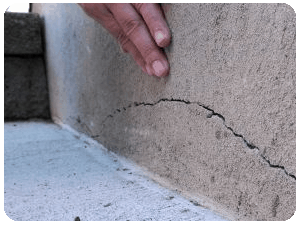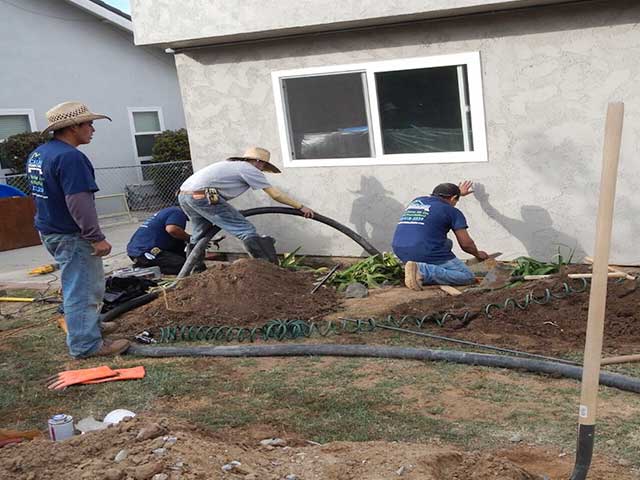Despite popular misconception, simply examining the levelness of a slab is not a sufficient means of determining whether underpinning is needed. Although slab measurements are a widely used method of determining the levelness of a slab, they cannot and should not be used as the sole basis of evaluation on the need for foundation underpinning. There are a variety of issues that should be addressed with underpinning that will not be detectable by measurement of the slab alone.
No newly constructed slab is perfectly level
When a new home is constructed, numerous aspects affect slab parameters such as the slope, shape, support elements, degree of soil construction, and the weight of the structure it supports, among other things. Given the fact that human handiwork cannot reach machine precision, an absolutely 100% level slab at the time of construction is absolutely impossible. It is quite feasible that during the time of construction of a home, a slab will have a slope of 2 inches or more, and the residence will be built to sustain this deflection. Therefore, any leveling done on this house in the future to correct the incline may actually negatively affect structural integrity.
Related: Common Misconceptions About Foundations
Slab foundations are constantly moving due to soil expansion
Soils in and around Los Angeles tend to have expansive qualities, so the moisture content of the soil constantly fluctuates. Moist soils expand and dry soils contract, and for this reason slab measurements taken over extended periods of time will show varying levels of deviation. The deviation of a slab is an important criteria, but it is not the only factor to consider when examining a foundation.
A structure in need of significant repairs can still yield a level reading
Because of moisture fluctuations, a slab which was not completely level when built, can undergo soil expansion or contraction underneath the slab, and will still show a level reading.
Relying on Measurements Alone is a Big Risk!
Measurement of slab foundations slopes is not the only way to tell if a foundation is in need of repair. Relying solely on measurements to determine the condition of a foundation often leads to inaccurate evaluations, and risks incurring further damage to a home. Examining the soil conditions in the area in which the home is located, the shape of the slab, and an understanding of the mechanics of slab construction all factor in to come to a well-informed decision on whether or not to recommend foundation repair.
Measurements, Observation, Soil Analysis, and Experience
Related: Foundation repair solutions
California Foundation Works tried-and true methods of foundation repair have been tested successfully over the years, and will effectively counteract the effects of expansive soil on slab foundations. When inspecting a foundation we provide a free estimate for the repair, informed by our experience, extensive knowledge of Los Angele soils, thorough structural analysis, and measurement-taking. We have recommended repair on homes for issues that other foundation contractors have mixed, and just as often we have found no need for repairs on homes that other companies recommended unnecessary repairs. We pride ourselves on our integrity, and always fully stand by our evaluations of slab foundations.
Related : 5 Important Reasons to Repair your Home’s Foundation
If your home is displaying signs of foundation problems, contact California Foundation Works today at 323-418-2239! Our trained experts will be happy evaluate your home’s foundation for structural integrity.


